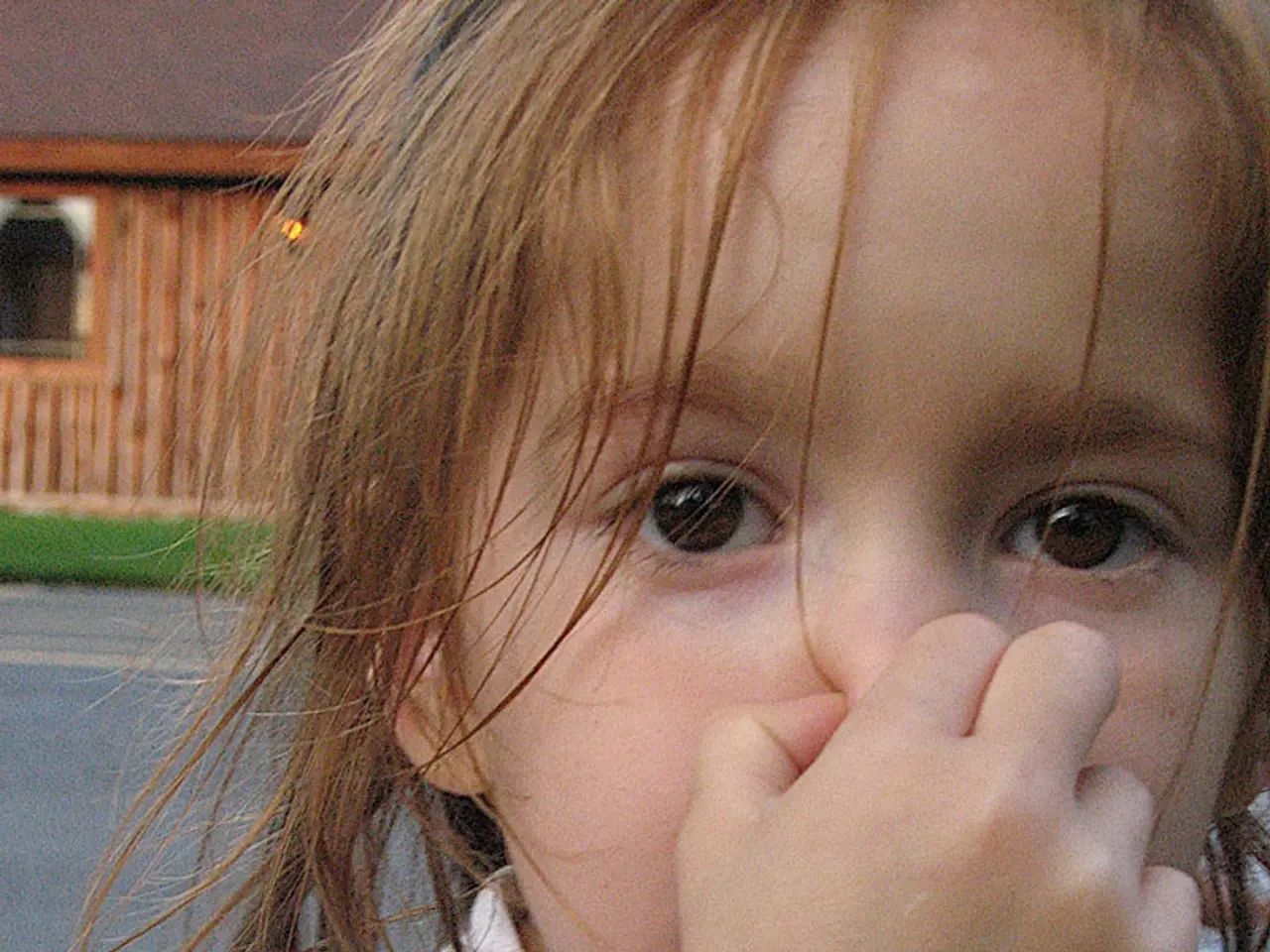Consuming snot may pose health risks and strategies for cessation discussed
In a curious twist of human behaviour, the habits of nose picking and eating boogers have garnered attention in the medical community. While these practices may seem harmless, they can potentially pose risks and cause physical harm.
Mucus in the nose acts as a filter system for viruses and bacteria, and each booger may contain harmful microorganisms. Excessive nose picking can cause lesions in the nasal passage, leading to symptoms such as nasal obstruction, discharge, nosebleeds, facial swelling, and pain. In extreme cases, excessive nose picking has been known to cause erosion to the orbital wall.
Eating boogers, a habit known as mucophagy, is not without its potential risks. While some proponents argue that ingesting nasal mucus might expose the immune system to small amounts of pathogens, potentially "training" it and strengthening immunity, this claim is not scientifically confirmed. On the contrary, ingesting mucus could transfer pathogens or allergens into the digestive system, possibly increasing the risk of gastrointestinal infections.
Regarding the compulsive habit of nose picking (rhinotillexomania), it is considered an obsessive-compulsive behaviour when persistent and causing distress or harm. It can result in physical damage (nasal sores, bleeding) and social stigma. People who pick their nose have an increased risk of the bacterium Staphylococcus aureus in their nose, which can potentially cause infection.
Treatment for compulsive nose picking focuses on habit reversal and managing underlying psychological factors. Behavioural therapies such as Habit Reversal Training (HRT) help by increasing awareness and replacing the habit with alternative actions. Cognitive-behavioural therapy (CBT) can address underlying anxiety or compulsions. In some cases, topical treatments to address skin irritation might be used. Medication may be considered if underlying obsessive-compulsive disorder or anxiety is diagnosed.
Keeping the hands busy with a stress ball, handheld game, or crafting project may help occupy and engage the fingers and hands, reducing the urge to pick the nose. Using a saline spray or rinse, a humidifier, or a saline rinse to clean the nasal passages can help reduce boogers and the compulsion to pick them. Talking to a mental healthcare provider may help address any anxiety or stress that is prompting the nose picking.
It is important to note that eating boogers carries potential risks from introducing pathogens and physical injury, but any immune benefits are unconfirmed and not strongly supported by research. No credible medical literature endorses eating nasal mucus for health benefits.
In summary, the habit of nose picking can cause physical harm and social problems, and may be treated effectively by behavioural and psychological therapies. Eating boogers carries potential risks from introducing pathogens and physical injury but any immune benefits are unconfirmed and not strongly supported by research. No credible medical literature endorses eating nasal mucus for health benefits. It is generally advisable to avoid compulsive nose picking and ingestion.
Science has brought the practice of nose picking and eating boogers into the spotlight, revealing potential risks and negative consequences. Each booger may house harmful microorganisms and excessive nose picking can lead to physical harm such as nasal obstruction, discharge, and nosebleeds. Regarding nose picking as a compulsive habit (rhinotillexomania), it can cause direct harm, result in social stigma, and increase the risk of Staphylococcus aureus infection.
Treatment often focuses on habit reversal, managing underlying psychological factors, and addressing anxiety or stress. Behavioral therapies like Habit Reversal Training (HRT) and cognitive-behavioral therapy (CBT) are effective in altering the habit and treating its root causes. Health and wellness initiatives in the workplace-wellness and fitness-and-exercise space can help individuals manage stress and reduce compulsions.
Mental health plays a significant role in nose picking, and therapies-and-treatments like CBT can provide a solid foundation for managing the compulsion. Skin-care practices like using a saline spray or rinse can help reduce boogers, reducing the urge to pick. Lastly, engaging in activities like stress ball or crafting projects can help occupy the hands and divert the attention away from nose picking.
Although some may argue ingesting nasal mucus could boost the immune system, this theory lacks scientific evidence. No credible medical literature supports eating nasal mucus for health benefits, and the risk of introducing pathogens and physical injury outweigh any potential advantages. In light of this information, it's crucial to avoid both compulsive nose picking and eating boogers.




